The 2024 European Rolex Scholar
SAMUEL THOMSEN
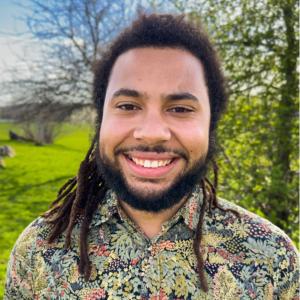
Samuel Thomsen, 24, was born in Bristol, England. His formative years were enriched by a deep connection to the natural world. From nurturing corals in tropical aquariums, exploring coastal rock pools, to indulging in pond dipping adventures, Sam’s early fascination with the underwater realm laid the groundwork for his future pursuits.
Despite a tumultuous start and challenges in his personal life, Sam went on to study biological sciences at both Bangor and Edinburgh University for his undergraduate degree. However, it was during an international exchange year at Massey University, New Zealand he first obtained his open water certification whilst focussing studies on marine biology and conservation. With the Great Barrier Reef being so (relatively) close he couldn’t resist the opportunity to visit. On finally getting to dive on the great reef itself it became a life defining moment for him, re-affirming his absolute passion for coral and the fragility of these fascinating ecosystems.
Since finishing University, he moved to the Orkney Islands, working for NatureScot (a Government Agency) advising on transformative land use and Natural Capital. Driven by a desire to serve his community, Sam joined HM Coastguard as a Coastguard Rescue Officer, leading to amazing experiences like dramatic scenes of him hanging mid-air from a Sikorsky helicopter! Whilst on Orkney Sam undertook his divemaster training, diving in some of the most challenging conditions he has encountered underwater to date, in the infamous Scapa Flow, on World War One and Two wrecks and structures.
Sam is excited to explore his love for coral reefs (and other benthic habitats) and desire to help others, potentially utilising his search and rescue training. He is eager to integrate his passion for photography throughout his journey this upcoming year.
Sam is also particularly interested in exploring the intersection between biophysical and socioeconomic sciences, for the betterment of people, communities, and nature. He envisions achieving this by building upon his professional experience working on ecosystem services, natural capital and environmental policy.
The 2023 European Rolex Scholar
LUCY PENNEY

Lucy Penny, 23, from southwest England, is a nursing undergraduate with a keen interest in dive medicine, physiology and remote expeditions. Her lifelong love of the sea developed when diving and snorkeling in the UK’s seagrass beds and kelp forests. Exploring the coast in Indonesia and New Zealand only furthered her appreciation for the underwater world, its inhabitants, and the communities dependent on this environment. The ocean provides Lucy with respite whilst on track to obtain a 1st class honours degree in Adult and Paediatric Nursing at Plymouth University.
During her university studies, Lucy has helped children suffering from poor mental and physical health. She finds caring for people at their most vulnerable a privilege. When working as an outdoor pursuit instructor, Lucy loved how much enjoyment school groups would get from spending time in nature. She aims to reconnect children with the ocean to help them experience both health benefits and encourage interest in their surrounding environment. Lucy wants to ignite a passion for the sea that inspires younger adults and children to become the next ocean custodians.
During the COVID-19 pandemic, Lucy worked as a Medical Technician at Aquamarine Medicals. She helped provide occupational medicals for essential maritime professionals, working with both divers and seafarers. She enjoyed meeting diving professionals who worked across the world in all areas of diving and gained insight into the physiological and medical challenges from the diver’s perspective. She led the company’s social media and collaborated with marine experts to produce blogs aiming to inspire others. This sparked Lucy’s interest in combining healthcare and diving as a career and led her to complete an HSE SCUBA commercial dive course with Plymouth University.
To combine her love of diving, adventure and healthcare Lucy recently undertook an expedition medicine course, where she was voted most outstanding student both by faculty and students alike. She enjoyed working with like-minded people who provided her with much-valued mentorship and encouragement to make her passion into a career. Working as a RNLI lifeguard made Lucy appreciate how the ocean provides peace and tranquility, but how it’s also unforgiving. Diving in remote areas can challenge human physiology and technological boundaries in locations that often have limited healthcare.
Lucy deeply respects the Society ethos and will wholeheartedly contribute all her energy and enthusiasm to make the absolute best of this incredible opportunity. Lucy aims to use the scholarship to progress her diving and medical skills to become a key team member and asset in future dive expeditions. She looks forward to her scholarship journey of adventure and education and integrating into a community that is dedicated to the ocean and the people that work there.
The 2022 European Rolex Scholar
HANNAH ROSE DOUGLAS

Hannah Douglas, 23, is an avid scuba diver, Marine Science student and yoga teacher from Wicklow, Ireland with a passion for marine ecology, conservation and effective scientific communication through art and photography.
Making the connection as a child between the ‘mermaid’s purses’ washed up on the shore and the sharks and rays living beneath the waves gave the ocean an enticing mystique. At 15 years old, she experienced scuba diving for the first time off Dalkey Island, where harbour seals swam by through the kelp fronds and bright orange starfish lay in carpets on the seafloor. Surfacing from this first dive, she felt she had been given the key to an entirely new world, one that she has since always wanted to share with those around her.
After finishing school, Hannah worked to fund more diving courses and completed her Rescue Diver training in Ireland before travelling to Thailand where she became a PADI Divemaster and volunteered planting coral reef nurseries. She then travelled to India and trained as a yoga teacher, learning mindfulness practices that she continues to incorporate into her diving.
Returning to Ireland, she began an undergraduate degree in Marine Science at the National University of Ireland, Galway, where in her first year she restarted the Marine Society, helping to organise weekly beach cleans with fellow students, hosting talks by marine scientists and fundraising events for marine conservation charities like Seal Rescue Ireland. In this leadership role, Hannah learned the importance and benefit of communication and teamwork to tackle large problems. She also found joy in taking effective action and discovered how it could bring a sense of relief to students who felt overwhelmed by the scale of the environmental crisis. During the summer of 2021, Hannah was selected to work as a Communications Content Creator for the Marine Institute of Ireland. In this role, she combined her love of art and Marine Science by taking underwater photos and sketching Irish native marine species.
Despite the constraints of the pandemic, by the age of 22, Hannah had accomplished a PADI Open Water Scuba Instructor qualification and started teaching courses. She also trained as a NAUI Scientific Diver and subsequently worked on multiple scientific field research projects, including her own research project focused on Pachycerianthus multiplicatus (Fireworks anemones) on the west coast of Ireland. Her objectives after university are to continue studying life in the ocean while broadening her knowledge of economics and politics by delving into the world of resource management and legislation.
She holds the firm belief that you should, ‘Be the change you wish to see’, and for Hannah, that is a global awakening to the beauty of our oceans and a wave of policy change to protect it.
The 2021 European Rolex Scholar
ARZUCAN ASKIN
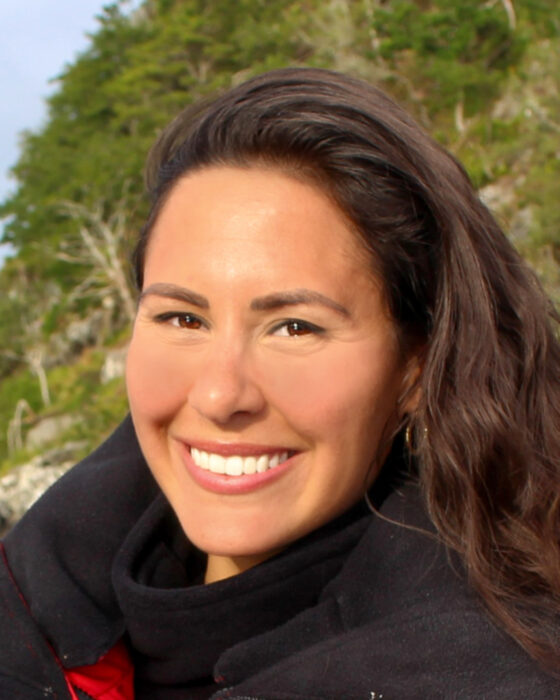
Arzucan is a human geographer and political ecologist deeply passionate about marine conservation, scientific exploration, and underwater cultural heritage. Born in Berlin as the daughter of Turkish immigrants, she spent all of her childhood summers on the Aegean coast, playing in seagrass meadows and observing archaeologists excavate remnants of ancient shipwrecks.
She gained her first experience in scientific diving and underwater photography at Li Po Chun UWC in Hong Kong where she spent 2 years surveying coral populations in Hoi Ha Wan Marine Reserve. Fascinated by their resilience and after witnessing illegal dynamite fishing during a dive in Malaysia, she realised that issues at sea are the result of decisions made on land and decided to pursue her undergraduate degree in Human Geography at the London School of Economics and Political Science (LSE).
There, she started a university-wide campaign to raise the next generation of social scientists trained to address the issues faced by our global oceans by founding the LSE Marine Social Science Expedition – the first of its kind to bridge the social and natural sciences through sailing. Turning a research vessel into an interdisciplinary think tank for the ocean, she sailed along the coast of Scotland while working on marine plastics, multi-species anthropology, geopolitics and blue economics with her team. In search for new and unconventional approaches to marine conservation in small island developing nations, she spearheaded a research expedition to investigate coastal climate change resilience in Cuba and unexpectedly returned with a new-found appreciation for the endemic garfish. Her dedication to creative and interdisciplinary fieldwork was recognised with a fellowship from the Royal Geographical Society.
Upon graduating from the LSE, Arzucan became a PADI Divemaster and briefly joined the World Bank’s West Africa Coastal Area Program, supporting the development of projects on integrated seascape management and illegal wildlife trafficking. Shifting her focus towards human-wildlife conflict, she is currently completing her MSc in Biodiversity, Conservation and Management at the University of Oxford, where her research addresses the intersection of anthropogenic pressure and non-human charisma of marine predators. She firmly believes in the power of the arts, photojournalism and documentary filmmaking to redefine human relationships with the ocean and seeks to build her skills in these fields underwater.
The 2019 European Rolex Scholar
Kim S. Hildebrandt
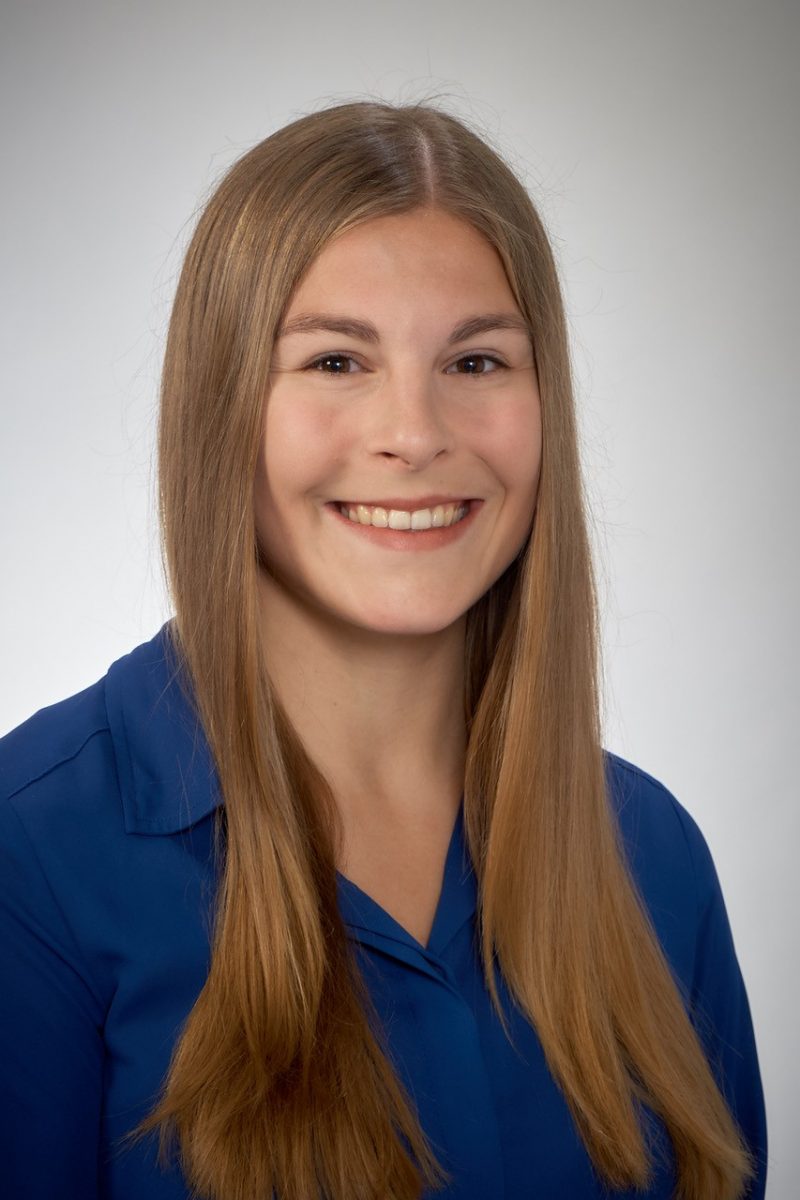
Kim, 22, is a Veterinary Medicine student with a special fascination for Aquatic Animals, before all Marine Mammals. A keen sportsperson and hobby photographer with an adventurous mind, she is currently living in Lisbon, but is originally from Hamburg.
Grown up on a horse farm, Kim has always had a deep connection to animals and nature, and a great curiosity for Natural Sciences. Her interest for the Underwater World has been sparked by reading Frank Schätzing´s “The Swarm”, leaving her wondering about what is still to be found out about the ocean’s organisms and human impact on them.
Therefore, she spent a year abroad in a coastal town in New Zealand, living in close proximity and relation to the ocean. At High School there, she attended the Marine Academy, Outdoor Education and Marine Science, for which she investigated the impact of construction works for a new canal system of the local river estuary on population size and health of a resident fish species. Kim also completed a Project Jonah Marine Mammal Medic training, where she learned about responsible Stranding Response to Cetaceans, which have captured her curiosity in numerous encounters. During this time, she picked up what work in a marine-related field is like, which she admired.
Through the Marine Academy, Kim discovered her passion for Scuba Diving. By the end of her year she was certified as a Padi Rescue Diver, having dived in different places around New Zealand´s North Island, including wreck dives on the HMNSZ Canterbury. In her free time, she enjoyed Free Diving, Kayaking, Fishing and Spearfishing around the Coromandel Peninsula. It all evoked a long-lasting magnetism for exploring the Underwater World and fuelled her wish to contribute to the Ocean’s Health and Marine Animals´ well-being in the future.
After finishing High School in 2016, she began studying her childhood dream in Hannover, Germany: Veterinary Medicine. She attended extracurricular courses in Turtle Anatomy and Clinics, and a marine-biologic and ornithologic excursion on the North Sea holm Hooge, exploring veterinary practise, research and conservation work with fish and seabirds.
In 2018, she dived in Thailand with a Marine Scientist, waking her interest for Scientific Diving. Here, she also completed her Nitrox Level 2 certification.
When Kim finished her Veterinary Preliminary Examination, ranking 5th in her year, her ongoing desire to live closer to the ocean, and the eagerness for intercultural exchange, drew her to Lisbon for an Erasmus semester.
At the Veterinary Faculty there, Kim already gained experience in Marine Mammal Pathology by performing a necropsy on a stranded common dolphin. Thereby, she learned about Cetacean Anatomy, Physiology and Parasitology. She also attended a course about Wildlife and Conservation Medicine.
Along her studies, Kim developed the will to focus more on relations between anthropogenic actions and environmental changes, and the consequences for Wildlife and its habitats, preferably in the marine environment, following the concept of “One World, One Health”.
Becoming the 2019 European Rolex Scholar is an invaluable opportunity for Kim to explore how to combine this future mission of hers with the academic path of a Veterinarian, as well as her love for Diving, which she hopes to push to a scientific level. She could imagine to get involved in Aquatic Animal Medicine and Research, as well as Wildlife and Conservation work, but is eager to discover alternative opportunities throughout the Underwater World.
The 2018 European Rolex Scholar
Eric Jordà Molina
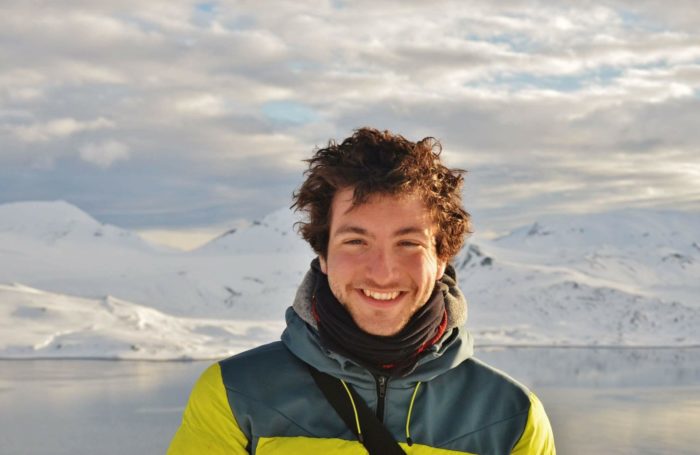 Èric, 24, from Barcelona, is an enthusiastic diver. He is qualified as a PADI Rescue diver and loves to dive the Norwegian sub-arctic fjords where he lives nowadays.
Èric, 24, from Barcelona, is an enthusiastic diver. He is qualified as a PADI Rescue diver and loves to dive the Norwegian sub-arctic fjords where he lives nowadays.
His passion for the oceans started early when his parents bought him the collection of The Undersea World documentaries from Jacques-Yves Cousteau. As a kid, he spent los of hours snorkelling in the small coves of the Costa Brava, feeling the gentle stroke of the posidonia on his belly, playing with octopus and discovering rocks filled with encrusting life.
His fascination for the underwater world lead him to complete a bachelor in Marine Science at the University of Alicante, in the south of Spain. During his bachelor, Èric enrolled in an ERASMUS exchange at Nord University located in Bodø, in the Norwegian arctic. He studied epibenthic communities in the area of Vesterålen and learned a wide range of marine benthic taxa. He quickly fell in love with northern Norway. However, something was telling him to go further north to experience the high Arctic. So, he decided to study at The University Center in Svalbard in order to follow courses in Arctic Marine Biology and Arctic Environmental Management. He got the amazing opportunities to participate in marine research cruises, go sea ice sampling and drive snow scooters. By the end, he got captivated by the archipelago and its extreme landscape.
Knowing that Norway was his place, he started his MSc in Biology and Aquaculture at Nord University and returned to Svalbard periodically during this last year 2017. He took some external courses in Underwater Robotics and in Arctic Benthic Ecology, both involving very intense fieldwork on board of the R/V Helmer Hanssen and at the polar research town of Ny-Ålesund. In November, he participated on a 12 day-long scientific cruise around Svalbard waters as a benthic research assistant.
Most recently, he has been working on his master thesis researching soft-bottom benthic communities of the deepest fjord of Northern Norway, Tysfjord. Alongside his masters, Èric has worked as a lab assistant for the Benthic Ecology Research Unit and has assisted in fieldwork and teaching-related activities for the undergraduate Marine Biology course at UiN. He has been also employed part-time as a field biologist performing MOM-B analysis for environmental monitoring of the seafloor in Norwegian aquaculture facilities.
Among Èric’s interests are photography, videography and illustration. He is really enthusiastic about transmitting his passion for science through artistic approaches and he likes to convey to others that marine science is amazing and adventurous, as almost every day there is something new to learn and to discover. He has a special fascination for deep sea exploration and for the polar ecosystems, as he thinks they are still hiding lots of secrets to be unveiled.
Èric hopes to gain more knowledge about diving during the scholarship, making him a proficient and solid scientific diver by the end of the year. He sees the opportunity of becoming the next OWUSS European Rolex Scholar 2018 as a one lifetime chance to experience the challenges that the marine environments around the world are facing with nowadays and to investigate how can we, all as a collective, contribute to make a change.
The 2017 European Rolex Scholar
Mae Dorricott
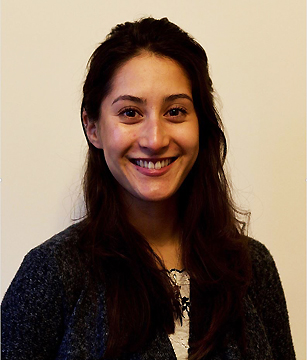 It began with her visits to the Malaysian coastline from a young age to see her mother’s family. Mae would be thrown into the water by her aunts and uncles with a mask and snorkel on and from there it grew exponentially. When she found out that SCUBA diving was something people did, all she had to do was wait until she turned 12 and completed her open water qualification. This began the snowballing passion to explore the underwater realm and with her father an avid diver also they dipped underneath the waves of the British sea.
It began with her visits to the Malaysian coastline from a young age to see her mother’s family. Mae would be thrown into the water by her aunts and uncles with a mask and snorkel on and from there it grew exponentially. When she found out that SCUBA diving was something people did, all she had to do was wait until she turned 12 and completed her open water qualification. This began the snowballing passion to explore the underwater realm and with her father an avid diver also they dipped underneath the waves of the British sea.
It became apparent that this wasn’t just a hobby anymore, but something worth pursuing, as a career as there was nothing else that caught Mae’s desire more than to be near the sea. She was able to dive with marine biologists with a UK project SeaSearch, for willing volunteers to help catalogue the diversity and abundance of British marine life. Meeting “real life” marine biologists fuelled Mae’s need to understand and study this incredible blue world.
Once 18, Mae flew out to Mexico to partake in a conservation programme and dive master internship with the organisation GVI. During the first half of the programme she learnt how to survey the health of the reef, identifying and monitoring the corals alongside turtles and other mega fauna monitoring. Next, she completed her dive master internship in a dive shop in the little town of Mahahual. She decided that home wasn’t quite on the cards yet and worked back at the conservation base to train up new volunteers until she had to return to England for University.
Back from Mexico, Mae had a fire to complete her degree in Marine Biology at Plymouth University, renowned for its course and who also offered the chance to complete a HSE commercial diver course alongside an academic module in scientific diving. She fully enjoyed her undergraduate degree and her final dissertation project focused on the effects that the chemicals which leach out from plastics has on behaviour and embryonic development.
Mae has become interested in the avenue of scientific communication, an area she first encountered during her time in Plymouth when she worked at The National Marine Aquarium as a host. The task of bridging the gap between the latest science and the public and trying to generate dialogue is where Mae is now most interested in pursuing, resulting in her current undertaking of a Masters in Scientific Communication. The opportunity provided by the OW-USS is a phenomenal chance for Mae to try and capture a snapshot of what is out there, and help her achieve her dream of reconnecting others back to the sea.
The 2016 European Rolex Scholar
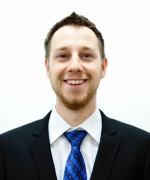 Felix Butschek, 24, grew up in Innsbruck amidst the alpine mountains of Austria, far away from the sea and without any notion about the diversity of marine life. This changed rapidly in 2009 when Felix was awarded a full scholarship to complete high school at the Lester B. Pearson College of the Pacific on Vancouver Island. At Pearson College, he chose a marine science class and started to scuba-dive. Felix was immediately hooked on the wonders of the marine environment, and spent every free minute at the local Race Rocks Marine Reserve, diving and sailing along the south coast of Vancouver Island.
Felix Butschek, 24, grew up in Innsbruck amidst the alpine mountains of Austria, far away from the sea and without any notion about the diversity of marine life. This changed rapidly in 2009 when Felix was awarded a full scholarship to complete high school at the Lester B. Pearson College of the Pacific on Vancouver Island. At Pearson College, he chose a marine science class and started to scuba-dive. Felix was immediately hooked on the wonders of the marine environment, and spent every free minute at the local Race Rocks Marine Reserve, diving and sailing along the south coast of Vancouver Island.
By the time he left school, Felix had attained the PADI Divemaster qualification and realized that he wanted to pursue a career in underwater science.
After a year of social service in Austria, Felix moved to the west coast of Scotland in 2012 to study Marine Science with Arctic Studies at the Scottish Association for Marine Science (SAMS). He joined a local branch of the British Sub Aqua Club (BSAC) and in collaboration with his dive club and SAMS, he helped in the discovery and identification of several WWII flying boats near Oban. This fascinating endeavour sparked his interest in underwater archaeology and sonar technologies. In a small team of students, Felix set up a university BSAC branch at his college to share his passion for diving. Felix has since trained as an assistant instructor with the British Sub-Aqua Club and become proficient in accelerated decompression procedures. In his second year at university Felix also completed a five-week course in scientific diving with the Alfred Wegener Institute for Polar and Marine Research.
2014-2015, Felix spent an Erasmus exchange year on Svalbard, at 78°N in the Norwegian Arctic. This was a transformational experience in its extensive fieldwork including two weeklong research cruises in marine geology and biology. Felix consequently chose to dedicate his BSc dissertation and research project to the study of climatic variability and ice sheet dynamics in an area of western Svalbard. This reflects his interest in climate change from glacial-interglacial cycles to anthropogenic warming. In January 2016, Felix participated in an advanced training course on stereo-photogrammetry with the UK National Facility for Scientific Diving. He is keen to develop 3D visualization further and apply it to study and to convey the natural beauty of the marine environment.
Felix is most enthusiastic about temperate and polar marine environments and efforts to protect the Arctic regions, which are already heavily affected by climate change. For him, the award of the European Our World Underwater Scholarship 2016 is a dream come true. Felix believes that his experiences during the scholarship year will shape his career in the underwater world and help him share his passion for remote polar seas.
The 2015 European Rolex Scholar
Daniel Copeland, 23, has always enjoyed learning about, understanding and experiencing different aspects of the natural world. Despite this underlying passion, and a childhood living along the coast of North Wales, his plan throughout most of high school was to follow a path in electronic media and graphic design. It wasn’t until he took his first breathes underwater during an introductory ocean dive in a harbour in Malta, that Daniel’s love for the underwater world rapidly bubbled to the surface. During that dive, he was captivated by an unlikely encounter with a colourful and curious cuttlefish – an experience that changed the direction of his life forever.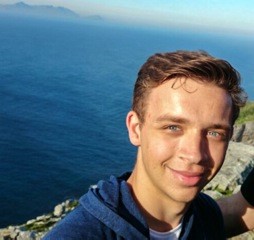
Over the next few years, Daniel gained his PADI Open Water diving certification in Turkey, enrolled on an Open University, self-taught course in marine science, and embarked on a month-long expedition to Ecuador. Here he was fortunate enough to experience the rich marine biodiversity of the Galapagos archipelago, snorkelling with sea lions, sharks and penguins during a week tour of these famed islands. He was hooked! A career revolving around the underwater world was now the only path for him.
Daniel took a year out from education to further his diving skills and continued travelling to foreign shores. He spent three months immersed in the scuba culture of Thailand’s islands, where he was trained as a PADI Divemaster and to service Aqualung regulators. Daniel then headed to Mexico’s
Yucatan peninsula, to experience an unforgettable introduction to cenote diving, and to unexpectedly attend the world’s second largest underwater wedding!
Daniel completed his degree in Zoology at the University of Sheffield in 2014. Although he was distant from the sea, Daniel managed to keep the underwater world a constant during his studies. He became a member of the university’s sub-aqua club, serving on the club’s committee and
participating in the organisation and management of various dive trips around the UK. Through the club he was trained as a drysuit and Nitrox diver, and later began teaching fellow students as a BSAC Assistant Diving Instructor.
In 2012 Daniel interned at the Marine Discovery Centre at Landaa Giraavaru in the Maldives, where he assisted the resident biologists with their turtle rehabilitation, coral reef propagation, and fish breeding programmes. It was here that Daniel also helped the Manta Trust collect photo ID data of manta rays within Baa Atoll and the world famous Hanifaru MPA. He went on to assist other scientists studying marine megafauna, including tagging whale sharks in Tanzania and supporting another manta ray researcher in Indonesia. His final year research project focussed on gender differences in the skin morphology of lesser-spotted catsharks, whilst his dissertation assessed the effectiveness of ecotourism in the conservation of elasmobranchs.
Throughout his experiences, Daniel has enlisted different ways of sharing his passion for the underwater world. He has organised stands and given public presentations on manta conservation at several UK dive shows, and recently helped to manage a Scottish festival dedicated to basking
sharks. Putting his existing media skills to good use, he has collaborated with marine NGOs to spearhead multiple online campaigns to garner public support of protective legislation for sharks and rays, reaching an audience of more than four million people. After developing a keen interest for underwater photography and videography, he placed 2nd in an amateur wildlife film competition ran by a popular UK natural history TV channel, with a one-minute film on blue sharks.
Over the years, Daniel’s desires have developed from pursuing a career in the underwater world, to developing one where he also plays a part in conserving it. Despite the armada of anthropogenic impacts that threaten our oceans, Daniel believes that the biggest challenge is inciting the world to care about these threats in the first place. His goal is to gain a better understanding of how to re-connect people with the ocean using a variety of different strategies – after all, a world that continues to be disconnected from its marine environment will have no interest in fighting to protect it.
Daniel is honoured to be appointed the OWUSS European Rolex Scholar for 2015, and believes it will provide an invaluable opportunity for him to learn how he can play a role in rekindling a love for our blue planet.
The 2014 European Rolex Scholar
Elena Salim Haubold is a German/Venezuelan biologist who is extremely passionate about the marine fauna, especially sharks. Her dream is to work towards the long-term conservation of these predators using ecotourism.
Although a part of her family comes from Germany, she had the privilege of growing up in Venezuela: a beautiful tropical country with the longest coast along the Caribbean Sea, where she was strongly in contact with nature. Her favorite activities are swimming in the ocean and rivers, traveling around the exotic national parks and interacting with all kinds of species in their natural habitat. At a young age she realized that being surrounded by animals was her purpose and biggest motivation in life.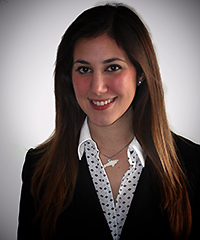
Elena studied biology in the Simon Bolivar University (Caracas, Venezuela) where she received appropriate guidance to get into the scientific world. Meanwhile, she got certified as a scuba diver to gain a strong foothold in her job as a researcher of marine life.
Elena also undertook a free diving course for six months which helped her with her breath control during interaction with the aquatic world.
In the third year of her career she went to the multicultural city of Granada (Spain) for one year as an exchange student. There she had the chance to learn about social behavior and animal physiology through research projects at the university and discovered her other passion, travelling!
Her experiences around Andalucía, East Europe, Morocco and Scandinavia gave her a holistic understanding of how different cultures live and use their natural resources. At this point she was unaware of how useful this knowledge would be in helping her achieve the goal of protecting marine life.
One day, by chance, she watched a video of the world famous shark feeder Cristina Zenato on a television program where majestic sharks surrounded her. She was fascinated by it and this scene changed her view of this group of fishes and it was then that she decided to work with, and for the sharks. Following this, she decided to get involved in shark research spending seven months at the Bimini Biological Field Station (The Shark Lab).
Elena’s research was about the effects of coastal development on the spatial ecology of the lemon shark (Negaprion brevirostris) population of this small and pristine island. She was finally able to see sharks in their natural environment and found it extremely fascinating.
She got an honored mention from the university for her research findings (University of Granada) and couldn’t wait to follow the path of a shark biologist. The ecological reason is their fundamental role as top-predator in the ecosystem. They play a key role in maintaining the ecological balance. It was her dream to become a specialist in the tiger shark predatory behavior and its effect on the prey population. Her belief was that by taking this path she would be able to contribute towards Shark Conservation, but it dawned on her that the outside world is completely different from the academic environment. Her opinion is that what really determines the vulnerability status of any marine species is commercial fishery and perception of the general public regarding the danger faced by marine species.
Elena’s goal of Marine Conservation using Sustainable Tourism required sound business knowledge of the tourism industry and so she decided to pursue a Master’s degree in Business Administration in the field of Tourism Industry from European University, Munich. This coupled with her stint at Phantom Divers gave her both the theoretical and practical knowledge required to get started with her endeavor in the Sustainable Tourism industry.
Elena understands the importance of involving the society in the Ecotourism industry. The contribution of local communities is a powerful catalyst in the conservation process. The realization of people that they are the real owners of nature and that it can be a viable source of high income, will encourage them to protect it. Being an OWUSS Rolex European Scholar will give her the right platform to implement her ideas in order to guaranty long term marine conservation.
The 2013 European Rolex Scholar
Chloé Maréchal, 24, of Lyon, France is a passionate diver currently pursuing an Erasmus Mundus Master of Science in Marine Biodiversity and Conservation.
Her curiosity for the Ocean started early when reading Jules Verne and watching Jacques-Yves Cousteau documentaries. She started diving at the age of 18 and has since been certified as a PADI divemaster, PADI scientific diver and GUE fundamentals diver.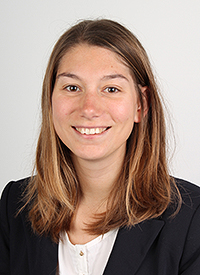
Her love for the ocean grows every time she dives. She has around 150 dives in the Mediterranean (France), the English Channel (France), the Caribbean Sea (Guadeloupe), the Yellow Sea (South Korea), the Coral Sea (Australia), The Cerbres Sea (Malaysia) and the Atlantic Ocean (Portugal).
After completing a bachelor in Biochemistry, at Claude Bernard-Lyon 1 University (France) in July 2010, she decided to travel around Australia with the intention to learn English and dive the Great Barrier Reef. She also wanted to start having experiences in marine science so she choose to apply as a volunteer in different marine labs and had the chance to enjoy an internship in the Australian Institute of Marine Science (AIMS, Townsville). There, she worked on questions about the symbiosis between corals and nitrogen fixing bacteria.
Since then she has developed a particular interest in marine microbiology and symbiosis relationship. This is why she chose to conduct her master thesis about microbial communities in sponges at the Center of Marine Science of the Algarve, Portugal.
She recently had the unforgettable experience to participate to a scientific expedition from Bremen, Germany to Cape Town, South Africa on board of the German research vessel Polarstern. She was part of a team working on the biodiversity and the activity of microbial biofilm in niches in the ocean.
Diving and science are not her only passion; she enjoys exploring new countries, discovering new cultures and meeting new people. Her master degree allows her to study in different countries as Portugal, Slovenia, Germany and Spain.
In the last 3 years, she had the chance to work, travel or study in more than 10 countries on 4 continents. Those journeys expanded her worldview. She learned that cultural differences are more than just differences in language, food, appearances, and personal habits. A person’s culture reflects very deep perceptions, beliefs, and values that influence his or her way of life.
Her education and her travel made her realise how much marine biodiversity is important in an ecological, aesthetic and cultural point of view. It provides a wide variety of goods and services including vital food resource for millions of people. She truly believes that using the ocean in a sustainable way is an urgent issue and understands other cultures help to make efficient decisions about costal management and conservation planning.
Chloé is passionate, hardworking, and she loves challenges. Her ultimate goal is to use diving to carry out research, exploration and conservation. She believes becoming the OWUSS Rolex European Scholar will help her to reach this goal and allow her to spread her passion for the ocean and diving and encourage people world-wide to help preserve and protect our ocean life.
The 2012 European Rolex Scholar
Oscar Svensson, 24, was born on the west coast of Sweden but was raised in the middle of the country far from the sea for the first years of his life. Fortunately his family spent every summer at the coast and when he was ten years old they finally moved there and had the sea within walking distance. From the very start Oscar loved water, and spent as much time as possible during the short Swedish summers snorkelling. This led to his interest in the marine life from a very early age. At the age of thirteen he took his first dive course at the local club and loved every minute of it.
For high school he moved to the small town of Lysekil which is a centre for marine biology in Sweden and started his education in the marine sciences.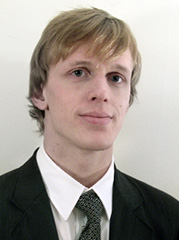
He has continued on the marine path with courses in Marine Biology at the University of Gothenburg, but currently he is a final year undergraduate student in Biotechnology with the aim of combining these two paths. One of the things that led him to the field of biotechnology is his interest in the use of algae for production of bio fuels, an environmentally friendly energy source with great potential.
Oscar has been involved in a nationwide students’ organization between all the universities offering education in biotechnology in Sweden with the aim to further collaboration between all schools to promote this science to society.
In diving he has continued his education and is currently a PADI Master Scuba Diver Trainer and has worked as an instructor both in Sweden and on live aboards in Thailand. During his courses he tries to introduce people to the underwater world and the life to be found there to further their awareness of the marine environment. A 2°C dive at home is just as much fun as a tropical dive abroad, both have great beauty and things to discover. With 650 dives under his belt he knows there are still a lot to learn and just recently completed a Technical Diving Basic Skills course as a first step into technical diving.
Apart from diving he has a background in swimming and various martial arts. He also enjoys nature above the surface in the form of hiking and snowboarding with friends.
Through the scholarship Oscar hopes to learn more about the exploration of the sea, how can we move forward in a responsible way? He also wants to know more about how to convey the knowledge gained to a wider public so that they see the value of the marine environment, because what we value we want to protect.
“I am honoured to be selected as the 2012 European Rolex Scholar and look forward to experiencing the variety of the underwater world, knowing that I will learn much from the people I meet along the way.”
The 2011 European Rolex Scholar
Erin McFadden, 21, was born and raised in the Scottish coastal town of Dunbar and has always found the sea a source of fascination and contentment. Currently a final year undergraduate Marine Biology student at the University of St Andrews in Scotland, Erin first started to pursue the field of Marine Biology during high school after family caravan holidays spent around the British coastline opened her eyes to the wonderment of the sea.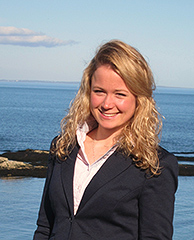
Realising the importance of diving to her chosen career path Erin completed her PADI Open Water course in the chilly North Sea at the age of 17 and less than a year later had embarked on a marine conservation expedition to the Bahamas. During the course of the expedition Erin was invited to stay on camp as a trainee and gained her PADI Divemaster qualification. Erin believes these 5 months were inspirational – unearthing her true passion for diving and the underwater world.
Achieving a life long dream Erin subsequently enrolled at the University of St Andrews. Having gained knowledge in a wide array of biology disciplines during her four year course Erin’s focus on Marine Biology and diving has never wavered with classes in oceanography and the human physiology of diving being of particular enjoyment. Erin enjoys her busy semesters and is a prominent member of the University field hockey team, with sport and exercise being another of her passions. Erin’s achievements in sport and exercise range from being a swimming club champion in her hometown for four years; captain of her school hockey team; and running the Edinburgh half marathon last year.
Erin has used every summer break during university to gain more diving experience and has been employed as a Divemaster – a role she finds extremely satisfying – in both Cyprus and Zanzibar. In addition, Erin has completed internships in South Africa and Mozambique where she was involved in pioneering manta ray research and began to appreciate the art of underwater photography. Erin delights in living and working with people from all over the World and her travels to date have made her extremely aware of the global importance of the ocean and how the livelihoods of so many depend on a healthy ocean.
Erin’s studies and dive experiences have allowed her to appreciate the delicate intricacy of the sea and the need for globally effective and sustainable conservation and resource management measures to be developed here and now. She believes educating the wider dive community, and ultimately the wider world, in order to increase social pressure will be fundamental if effective measures are to be accepted and introduced by world governments.
Erin is elated and honoured to be named European Rolex Scholar for 2011. She views the prospect of a year spent getting to the heart of the diving and underwater world and acquiring skills in an array of underwater disciplines as an unparalleled and extremely prodigious opportunity. “It is a true privilege to be representing both the Our World Underwater Scholarship Society and Rolex and one for which I will be eternally grateful.”
The 2010 European Rolex Scholar
Ingrid Rushfeldt Krüger (23) was born in the USA when her parents were stationed in Texas, her father being a fighter pilot with the Royal Norwegian Air Force.
However, Ingrid was raised in Norway where she learned to appreciate the majestic nature of the Nordic countries – and with that came an urge to fight for the preservation of wildlife and nature. She has been an active member of Friends of the Earth since 2004, and at the age of 17 this passion led her to establish in her home town, a division of Norway’s biggest environmental organisation for youth.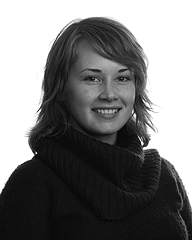
Accepted as a medical student at The Norwegian University of Science and Technology in Trondheim in 2005, she still could not let go of her passion for the environment, and was accepted at the medical students’ research programme with a project concerning an environmental toxin. Ingrid’s interests range from environmental issues and biology in general to neuroscience, baromedicine and photography.
After her first year at Medical School Ingrid traveled to Nairobi, Kenya where she worked as a volunteer helping out at basic health clinics in the Nairobi slums. The events she witnessed there changed her forever.
At the age of 21 Ingrid finally found her way to life under water. It wasn’t just a natural development of her passion for wildlife in general that brought her under water, but also the challenge of exploring an environment that humans are not evolved to survive in.
Ingrid took her basic diving license with the university’s diving group in 2007, as well as her further training (CMAS**) the following year. As a result of her work as Head of the Social Programme in the university’s diving group – she was elected leader the following year!
As a diver Ingrid was astonished by the beauty and complexity of life under water and wished to develop her knowledge and skills as a diver even more. As a result she conducted her CMAS Marine Biology Diver and GUE Fundamentals course in 2009 and has just been requested to stand for election to the National Board of the Norwegian Diving Federation.
At the present Ingrid is a fourth year medical student, a student researcher, licensed diver, amateur photographer and an environmentalist, and with the Scholarship she wishes to explore all of these roles and find out which of them she can develop to a point where they will be useful beyond her own existence. “What if I could help revolutionize the way we seek to prevent decompression sickness, by developing a pill that alters the inner lining of our blood vessels?”
The 2009 European Rolex Scholar
Filip, now 21 years old, was born in the 1000-year-old Polish seaport city of Gdansk. Since early childhood he has been keenly interested in sciences, logical thinking and the world. At age 10 he was part of a team who qualified to the International Finals of the Odyssey of the Mind” – a competition of creative thinking – finishing in third place.
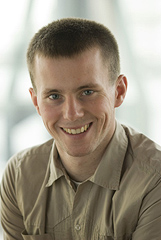 Water, he says has always played an important role in his life spending most of his childhood holidays at the shore where he first encountered scuba divers and became fascinated with their strange equipment and longing for his first breath underwater.
Water, he says has always played an important role in his life spending most of his childhood holidays at the shore where he first encountered scuba divers and became fascinated with their strange equipment and longing for his first breath underwater.
At High School Filip developed his interest in computer programming which led to being chosen four times for the Polish National Team for International Olympiad in Informatics, winning the competition in Mexico in 2006. It was however when Filip moved to the University of Warsaw that his opportunities to pursue his fascination with diving improved and he joined the local Diving Club.
Still highly interested in computer programming Filip joined with two other Faculty students to form a team that entered and won on two separate occasions the ACM International Collegiate Programming Contest in Tokyo, Japan. Since this he has focused more on tutoring other students and teams in computer programming.
Filip says that these competitions which he has entered and won allowed him to travel and dive in different countries and used these opportunities to explore on his own without others as he feels this is the only way to discover the true nature of the country and it’s people. Last year Filip completed an internship with Google in New York City and helped to develop one of their highly distributed data storage and retrieval systems. He chose this internship among others as it would place him closer to the ocean and allow him to continue to dive.
Currently qualified as a PADI Divemaster and Nitrox qualified with more than 200 dives under his belt, Filip helps to instruct handicapped divers and teaches freediving in his spare time.
Filip’s dream is to make a significant contribution to diver safety by re-writing decompression schedules and designing better and more efficient dive computer software.
The 2008 European Rolex Scholar
Born and raised below sea level in the Netherlands, Eline Juliette Feenstra (22), has been selected as the European Rolex Scholar for 2008/2009.
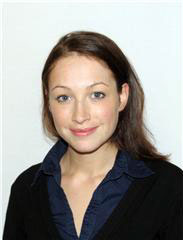 At the moment Eline is majoring in Philosophy at the University of Amsterdam, and will be awarded her undergraduate degree before the Scholarship starts in April 2008.
At the moment Eline is majoring in Philosophy at the University of Amsterdam, and will be awarded her undergraduate degree before the Scholarship starts in April 2008.
In 2005 she conducted her PADI Divemaster course, and in 2006 she became qualified as a TDI Extended Range Technical Diver with almost 200 open water dives under her belt.
After finishing secondary school and during her philosophy studies she travelled independently and extensively throughout India and Nepal. In India she volunteered at a local school and orphanage for unprivileged children. Due to her love of diving and the underwater world, she lived the most part of 2006 in Egypt to enable her to be near the ocean. She speaks three European languages including Dutch (native) English and French.
Eline has a major affection for nature, science and travelling. Her education included a broad variety of subjects, amongst others physics, mathematics, chemistry and biology, economics and politics. Thanks to her travelling she experienced many foreign cultures, languages and different ways of life. Philosophy extends and relates her knowledge of science and life into a broader perspective.
Being fascinated at the age of six by marine life, she created her own little ecosystem in the backyard pond. Maintaining water quality and a small fish population she became aware of how delicate and precious marine life is. On the age of 16 Eline started scuba diving in the Netherlands. Taking her first breaths underwater determined the future that lies ahead of her, a future in which diving will remain an active part of her life and career is no longer in doubt.
Diving relates her to our underwater world. ‘Being underwater relaxes me, and takes away the stress of time and the course of everyday life in our modern society.’ But diving is also a way for me to experience and to gain knowledge about marine life and the environment.’ Eline would like to extend her diving skills through practice, technical dive courses and specialties such as videography, ice diving and cave diving. She hopes that she can contribute and participate in research and expeditions one day with these qualities.
Eline’s main interest is helping to preserve the underwater world through the education of others. Acutely aware of current global environmental problems and passionate about marine conservation, she would like to pursue education and understanding. Her main interest concerns the fishing industry, especially the effect on the well being of whales, sharks and tuna. ‘It stresses me everyday that the well being of the oceans and the life of her inhabitants are at stake; we need to globally interact! The great thing is that there are people fighting everyday to preserve our natural world, but we have come to understand that this will not be enough. We need the whole world to act upon these problems. Though awareness is rising through research, documentaries and public discussions, it is difficult for people around the world to grasp the problems, and solutions. And it is solutions, that we drastically need.’
For Eline the Scholarship will endow her with valuable experience and help her to gain knowledge in great depth to anticipate the well being of the marine ecosystems. The OWUSS is her ticket and ‘masters degree’ to becoming an active and passionate member of the natural world.
Eline is more than grateful and honoured to be chosen as the 2008 European Rolex Scholar. And she hopes to be a valuable ambassador for the beautiful world below the sea.